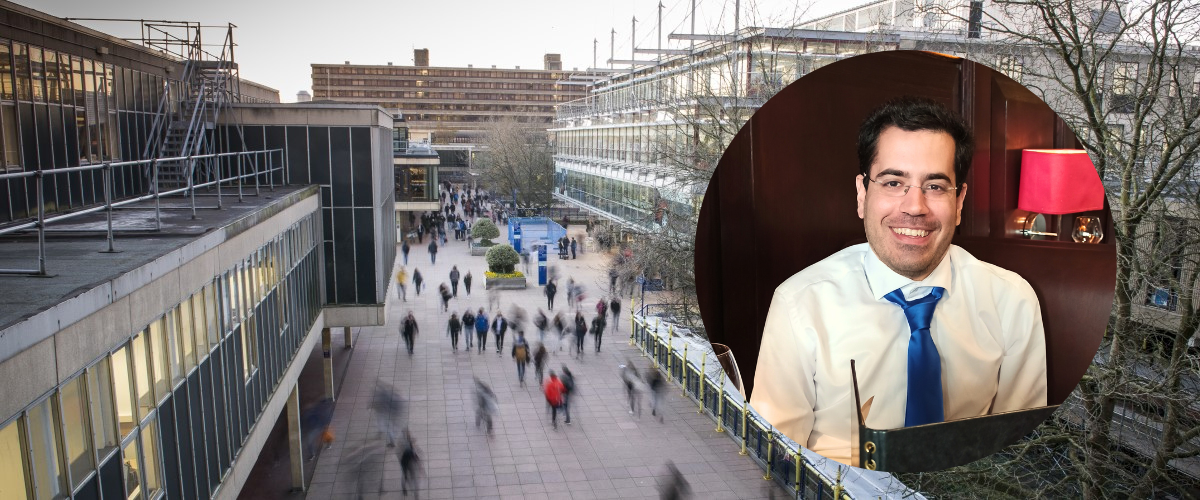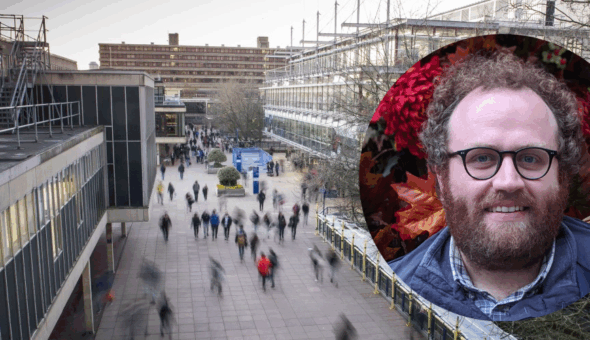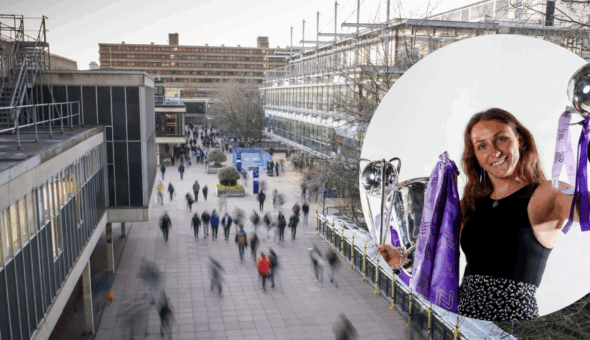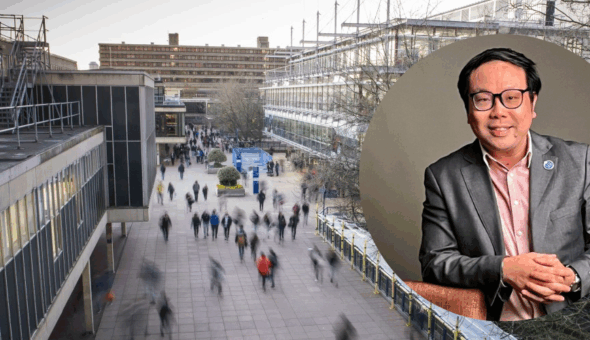For Sotirios, research has always been about tapping into the unknown. “Turning something unseen into measurable data is incredibly powerful,” he says, reflecting on the fascination that first drew him into the world of sensing technologies.
From his beginnings in Greece to his PhD and current Research Associate role at Bath, Sotirios has built a career shaped by curiosity, persistence and a love of discovery.
Why did you choose to study at Bath?
After completing my integrated MEng at the Democritus University of Thrace in Greece, I continued at the same institution with an 18-month research-oriented master’s.
That period gave me the opportunity to contribute to several journal publications in the field of electronic gas sensors, which strengthened my interest in pursuing a research career. I was particularly keen to continue with a PhD that combined engineering with real-world biomedical applications.
When I came across an opening in Dr Despina Moschou’s group at Bath, focused on lab-on-chip biosensors (tiny devices that can do the same kinds of tests you’d normally need a full lab for), it felt like a perfect fit and a natural progression from my previous work. I was excited by how this work could make a real difference.
The research direction, combined with Bath’s academic reputation and the appeal of living in such a beautiful and vibrant city, made the decision an easy one.
Did you have a career in mind when you chose your course?
At the time, I didn’t have a specific career path in mind. What motivated me was a strong desire to engage in research and explore ideas in depth. Pursuing a PhD felt like the right way to do that, regardless of where it might lead professionally.
Can you tell us about your experience of studying here as an international student? Any favourite memories, or places to go on campus and in the city?
As an international student, I really appreciated how beautiful and peaceful the campus was. It quickly became one of my favourite things about studying at Bath. The surrounding nature – with its walking routes and frequent encounters with wildlife – offered a great way to clear my head after long hours in the lab.
The city of Bath itself is a lovely place to live. I especially enjoyed spending time in the parks. The quiet green spaces made it easy to feel at home.
Describe your career journey since graduating. What is a typical day like in your current role?
After completing my PhD, I continued in the same research group at the University of Bath as a Research Associate, working with Dr. Moschou. 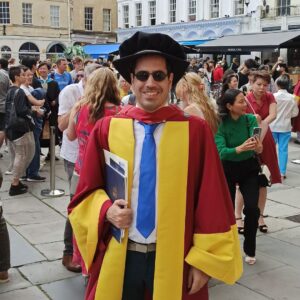
Since then, I’ve been involved in several successful research projects. My work has led to some exciting breakthroughs — like a system that checks the health of jet fuel tanks and one of the fastest COVID-19 tests ever developed. Our test gives a diagnosis in just three minutes. That’s remarkable when you think that standard lab tests can take hours. Those extra minutes can be critical when someone is waiting for a diagnosis. Speed can mean the difference between getting timely treatment and facing uncertainty.
My time at Bath also gave me the confidence to work on a saliva-based glucose sensor that doesn’t rely on enzymes, designed for people with diabetes. It’s non-invasive, meaning no finger pricking or continuous glucose monitors attached to the body, which can cause discomfort, irritation or infection. I developed this sensor as an independent entrepreneurial project inspired by the skills I built at Bath.
A typical day in my role is quite varied. It usually starts with hands-on work in the lab – testing devices, collecting data, or troubleshooting experiments. Throughout the day, I might have meetings with collaborators or project partners, and I also spend a good amount of time writing – whether it’s papers, reports, or grant proposals. It’s a role that keeps me engaged across both the practical and conceptual sides of research.
What do you enjoy most about your career? Has anything surprised you?
What I enjoy most about my career is the constant sense of discovery. I’ve always been fascinated by sensing technologies – how they allow us to detect and quantify things that are otherwise invisible or intangible. Turning something unseen into measurable data is incredibly powerful, and it’s what originally drew me to this field.
What has surprised me is just how many different directions this kind of research can take you, from healthcare to environmental monitoring and beyond. It’s exciting to see how fundamental research can have real-world impact across so many areas.
How did your studies help to develop you, professionally and/or personally?
Professionally, my studies helped me develop a broad and versatile skillset, largely thanks to the interdisciplinary nature of my research. Working across fields – from electronics to biology – allowed me to become comfortable navigating complex problems and collaborating with people from different backgrounds.
On a personal level, completing a PhD taught me a lot about patience and self-trust. Research doesn’t always go as planned, and it’s easy to feel stuck or discouraged. I learned that persistence in the face of setbacks is crucial – if you give up too soon, that’s when failure becomes real. Sticking with it, even when things are tough, was one of the most important lessons.
What advice would you give to Greek students thinking about studying at Bath?
I would encourage any Greek student who is passionate about research and eager to develop both technical and transferable skills to consider doing a PhD at Bath. It’s a great environment for focused, high-quality research, and there are many opportunities to grow professionally.
That said, UK PhDs are typically quite short – around three years – so it’s important to start with a clear plan of what you want to achieve and be proactive in working towards it from the beginning. For me, one of my main goals was to publish, so I stayed focused on that throughout. If you’re organised and driven, a PhD at Bath can be a really rewarding experience.
Respond
